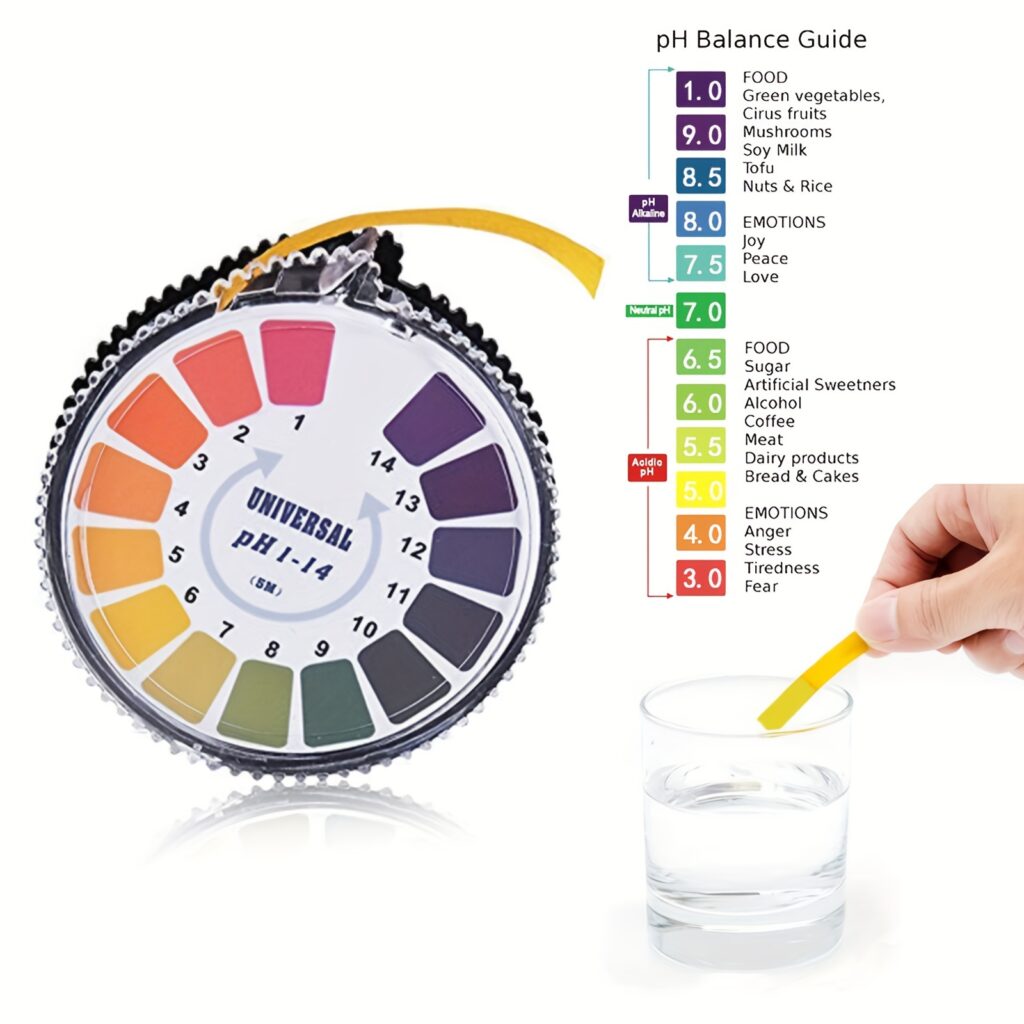pH measurement
Correct pH level is important for plant growth and you can easily measure it using these strips.
Key Features:
- pH Scale: The pH scale ranges from 1 to 14, with 7 being neutral. Values below 7 are acidic, and values above 7 are alkaline.
- Optimal pH Range: For most plants, the optimal pH range is between 6.0 and 7.5. This range allows for the availability of essential nutrients like nitrogen, phosphorus, and potassium.
- pH Measurement Methods: There are various methods to measure pH, including laboratory tests, pH meters, and pH strips. pH meters are more accurate and can provide real-time readings, while pH strips are simpler and more portable.
Benefits:
- Optimal Plant Growth: Correct pH levels ensure optimal plant growth by providing the right conditions for nutrient uptake and absorption.
- Improved Nutrient Availability: pH levels affect the availability of nutrients, and correct pH levels ensure that plants receive the necessary nutrients for healthy growth.
- Reduced Plant Stress: Correct pH levels reduce plant stress, which can lead to improved plant health and increased yields.
Conclusion:
pH measurement is a crucial aspect of plant care, as it affects the availability of nutrients and the overall health of the plant. By measuring pH levels, you can ensure optimal plant growth, improved nutrient availability, and reduced plant stress.




